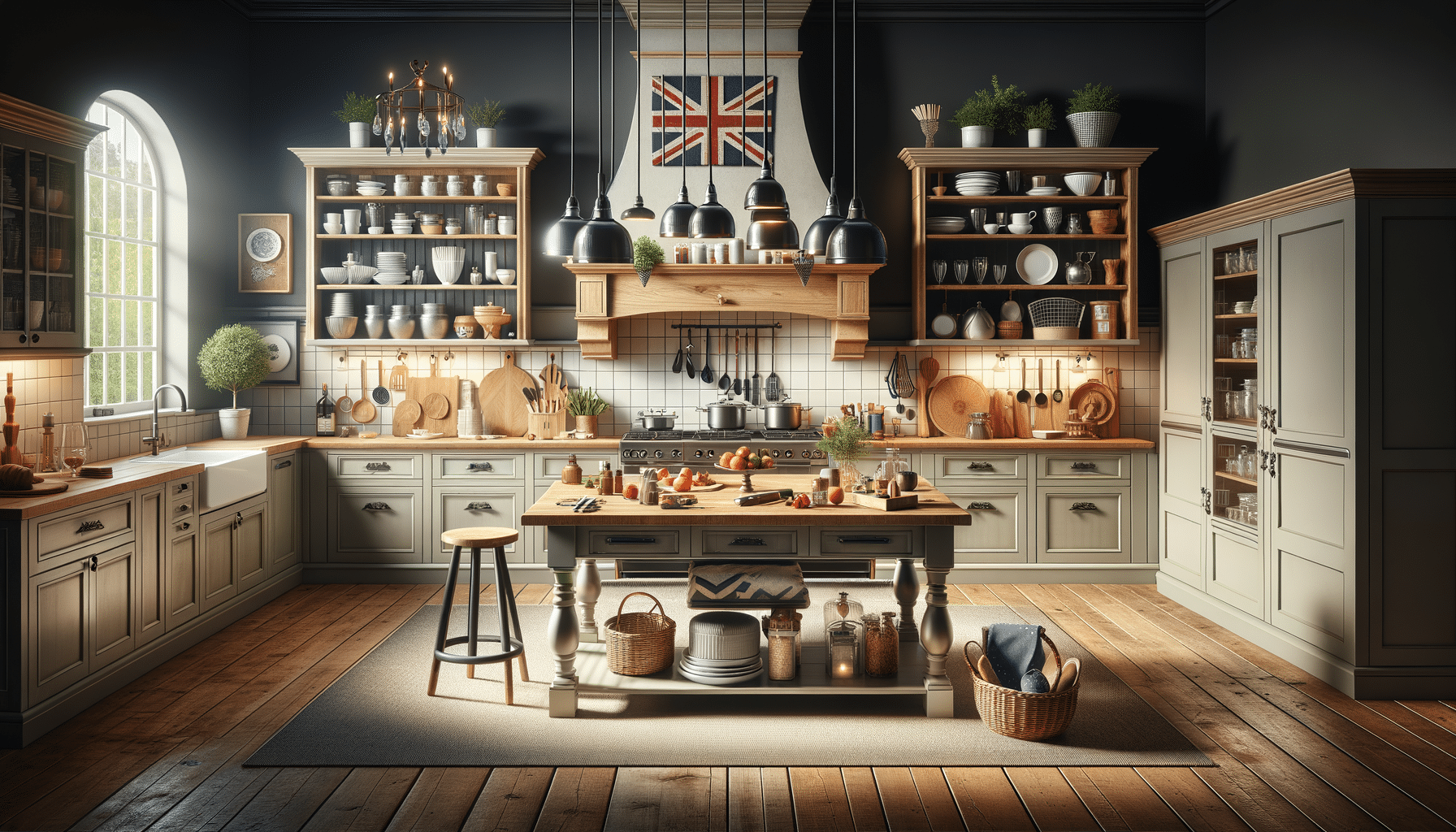
Exploring the Charm and Functionality of Kitchen Furniture in the UK
Understanding the Role of Kitchen Furniture
In the heart of every home, the kitchen serves as a hub of activity and comfort. Kitchen furniture plays a crucial role in defining this space, both in terms of functionality and aesthetics. The UK, with its diverse architectural styles, offers a unique backdrop for a variety of kitchen furniture designs that cater to different tastes and needs.
Kitchen furniture is not just about appearance; it’s about creating a functional space that meets the demands of daily life. From cabinets and countertops to dining tables and chairs, each piece serves a specific purpose. In the UK, where space can often be at a premium, the choice of furniture can significantly impact the efficiency and comfort of a kitchen.
Moreover, kitchen furniture in the UK reflects a blend of traditional and contemporary styles. This fusion allows homeowners to express their personal tastes while ensuring their kitchens remain practical and inviting. Whether it’s a sleek, modern design or a rustic, country-style kitchen, the furniture selected can transform the space into a welcoming environment for family and friends.
Popular Styles and Trends in UK Kitchen Furniture
The UK kitchen furniture market is rich with styles that cater to a variety of preferences. Currently, several trends are shaping the way homeowners design their kitchens:
- Minimalist Designs: Characterized by clean lines and a lack of clutter, minimalist kitchen furniture is popular for its simplicity and elegance.
- Rustic Charm: This style embraces natural materials and earthy tones, creating a warm and inviting atmosphere.
- Industrial Chic: Incorporating metal elements and exposed fixtures, this trend offers a modern, edgy look.
These styles reflect not only aesthetic preferences but also lifestyle choices. For instance, minimalist designs often appeal to those who value simplicity and order, while rustic styles may attract individuals who appreciate a more homely and traditional feel.
The choice of kitchen furniture is also influenced by technological advancements. Smart appliances and integrated storage solutions are becoming increasingly common, allowing for more efficient use of space and resources. As a result, furniture that accommodates these innovations is in high demand.
Materials and Sustainability in Kitchen Furniture
When it comes to kitchen furniture, the choice of materials is a significant consideration. In the UK, there is a growing trend towards sustainability, with many homeowners opting for eco-friendly materials that minimize environmental impact.
Common materials used in UK kitchen furniture include:
- Wood: A timeless choice, wood offers durability and a natural aesthetic. Reclaimed wood is particularly popular for its sustainability.
- Metal: Often used in industrial designs, metal provides a sleek and modern look.
- Composite Materials: These are increasingly used for countertops and cabinetry due to their resilience and versatility.
Sustainability is not just about materials; it also involves considering the lifecycle of the furniture. Many UK manufacturers focus on producing durable items that reduce the need for frequent replacements, thus contributing to a more sustainable lifestyle.
Customization and Personalization in Kitchen Furniture
Personalization is a key trend in the UK kitchen furniture market. Homeowners are increasingly seeking custom solutions that reflect their unique preferences and lifestyles. This trend is evident in the growing demand for bespoke kitchen furniture that offers tailored designs and finishes.
Customization allows for a high degree of personalization, enabling homeowners to choose everything from the dimensions and layout to the materials and finishes. This flexibility is particularly valuable in the UK, where kitchen spaces can vary significantly in size and shape.
Moreover, personalized kitchen furniture can enhance functionality. For example, custom storage solutions can address specific needs, such as accommodating unusually shaped cookware or maximizing storage in a compact kitchen. This level of customization ensures that the kitchen is not only aesthetically pleasing but also highly practical.
Conclusion: The Future of Kitchen Furniture in the UK
The future of kitchen furniture in the UK is set to be dynamic and innovative. As trends continue to evolve, there will be a greater emphasis on sustainability, technology integration, and personalization. These elements will drive the development of furniture that is not only stylish but also functional and environmentally conscious.
For UK homeowners, the challenge will be to balance these trends with personal preferences and practical needs. By staying informed about the latest developments in kitchen furniture, they can create spaces that are both beautiful and efficient, enhancing the overall quality of life in their homes.

